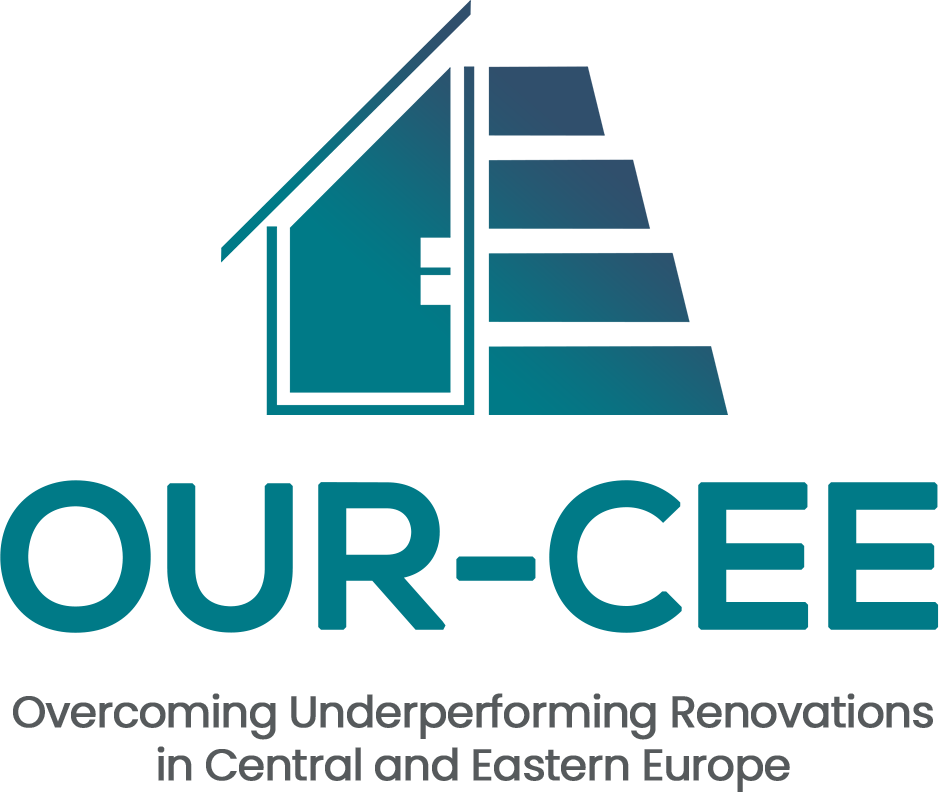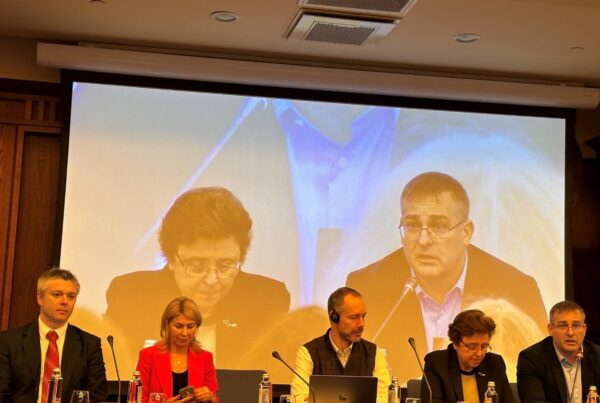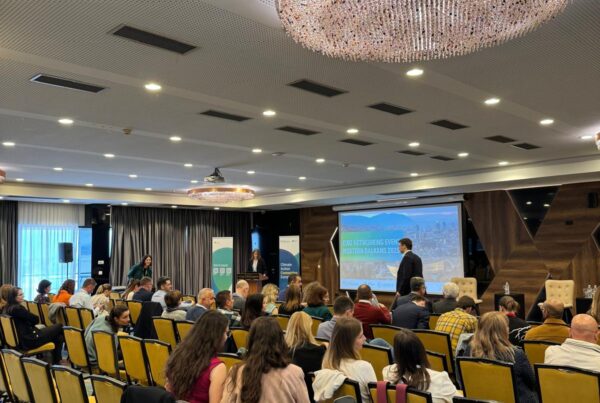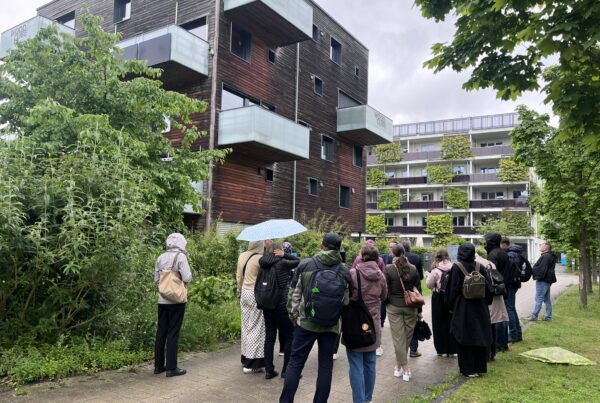How can ambitious climate goals be effectively translated into concrete actions in the cities and buildings of Central and Eastern Europe? We were looking for answers to this question during the international online conference titled “From Policy to Practice: Driving Energy Renovation in Central and Eastern Europe – Synergies, Strategies, and Local Success Stories from the CEE Region” held on 11 July 2025. The event was organized within the framework of the OUR-CEE project, funded by the European Climate Initiative (EUKI) of the German government.
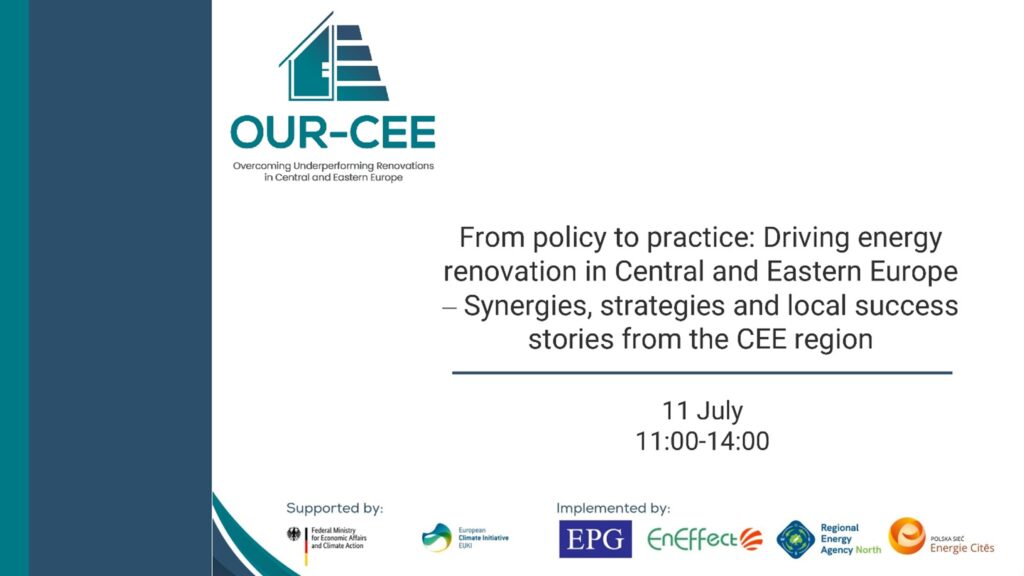
After a welcome word by Anna Jaskuła, Executive Director of the Association of Municipalities Polish Network “Energie Cités” (PNEC), participants were introduced to the issue of so-called “underperforming renovations” – modernization efforts that fail to deliver the expected energy savings. Luciana Miu from the Energy Policy Group (Romania) pointed out that in the CEE region, the main barriers include low ambition of projects, limited institutional capacity within local governments, and the lack of effective monitoring of results. As a consequence, public funds are often spent without achieving a lasting improvement in energy efficiency.
Ilona Szécsi from the Hungarian Energiaklub presented activities supporting the improvement of building energy efficiency in Albania and Kosovo, carried out within the RenovAID project. An initial assessment revealed the absence of energy performance certificate (EPC) systems, building databases, and trained auditors—making it impossible to enforce existing regulations. Szécsi presented a set of recommendations to improve the situation, including the creation of one-stop-shops (OSS) for renovation support, public awareness campaigns, and practical implementation of the EPC system.
Anna Jurczak from the Polish Green Building Council (PLGBC) discussed the challenges related to implementing the revised EPBD 2024 directive. She emphasized the need to consider the whole life-cycle carbon footprint (Life Cycle GWP) of buildings—not just during the operational phase, but also in the production of materials, construction, renovation, and demolition. Although recommendations and simplified calculation methods have already been developed in Poland, full implementation will require national databases and standardized methodologies.
In the second part of the conference, representatives of local governments and organizations implementing renovation programs at the local level shared their experiences.
Marcin Grądzki, Director of the Air Protection and Climate Policy Office of the City of Warsaw, presented the Warsaw Green Building Standard as an example of an effective tool for improving the energy performance of municipal buildings. This standard allows the city to integrate climate goals into its investment practices.
Todor Popov, representing the Bulgarian city of Gabrovo, shared experiences on engaging local stakeholders in renovation projects. Key factors for success included trust, joint planning, and effective communication management with residents.
The conference concluded with Jan Ruszkowski, Managing Director of the Renovation Wave Association, who proposed using building energy classes as a basis for designing support programs and encouraging property owners to undertake renovations.
The event demonstrated that effective building transformation is not only a technical challenge but also a social and organizational process. Achieving climate neutrality in practice will only be possible through cooperation among institutions, experts, and citizens. Therefore, it is essential to strengthen the capacity of local authorities, engage communities and professionals, and develop technologies for monitoring, financing, and the conscious implementation of building energy classification systems.
Source: PNEC
